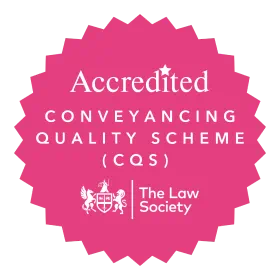Most of us at some point in our lives will need to instruct a professional for advice. Whether it is a solicitor for a property purchase, an architect for a building project or a financial advisor to manage your investments. We implicitly trust these individuals to give us the best advice to protect our interests.
But unfortunately, mistakes or oversights can happen. Often with major consequences.
If you have been given poor advice resulting in a financial loss, then you may be considering making a claim for professional negligence. To speak to someone about your case, please call us on 01420 82879.
It is crucial to understand the time limits for making a claim against the professional involved. In this blog, our Professional Negligence lawyers explain everything you need to know before embarking on the claim process.
When can you make a claim?
When a trusted, qualified professional fails to perform their duties to the expected standard, there can be significant consequences. The impact can be devastating for you, your family or your business.
If the advice received was a breach of their duty of care and you can prove that you have suffered a financial loss, then it is possible to bring a claim.
‘Professionals’ can be a wide-reaching term, but typically it includes legal professionals (solicitors, barristers, notary publics, conveyancers), financial professionals (accountants, mortgage brokers, financial advisors, stockbrokers etc.) and property professionals (architects and surveyors).
Some examples of professional negligence claims include;
- A conveyancer missing crucial information in a property purchase which impacts its value and re-saleability.
- An accountant giving poor tax advice resulting in high penalties from HMRC.
- An architect drawing up uncompliant plans resulting in building works being carried out only to be demolished.
What is the time limit for making a claim?
The time limit for making a claim for professional negligence can vary from case to case, depending on the circumstances, so it is important to seek early legal advice to avoid missing out.
Typically, the limitation period for making a claim is within 6 years from the date that the professional was negligent, or the date that your financial loss occurred. However, it is appreciated that it is not always black and white when negligence has caused the loss.
There are 2 types of limitation periods.
- Primary limitation period – 6 years
- Secondary limitation period – 3 years from the date of knowledge if the negligence only become apparent at a later stage. This secondary limitation period is subject to a 15-year longstop date.
Whilst the time limits for making a claim appear to be quite long, it is pertinent to seek advice as soon as you are aware of the negligence and a financial loss. Calculating the time limit can be complex and the consequences of missing the time limit is severe.
The longer you leave a potential claim, the harder it is to recall specific details. You also run the risk of misplacing paperwork or email trails and there is a chance that the professional who advised you could have moved on or be difficult to trace.
Are there any extensions?
It may be possible to still bring a claim after 6 years if the negligence only became apparent at a later stage. In such cases, the limitation date can be extended up to 3 years from the date you became aware or ought to have been aware of the negligence. This extension is subject to a 15 year long stop date.
This is to allow a negligence claim to be brought if the sub-standard advice is not clear within the initial 6-year period. For example, a financial advisor advises you to invest in an offshore property development that initially generates a good return but collapses in year 7. It was therefore not apparent that negligent advice was given until the limitation period had passed.
Once limitation has expired you will be ‘time-barred’ from bringing any claim. Limitation is therefore an important and integral part of any claim.
What can you be compensated for?
The ultimate aim in a professional negligence claim is to award damages to put the claimant back in the position they would have been in had the professional not been negligent and the loss not occurred. In some situations, there will be some costs that cannot be recouped. However, keeping good records can help to strengthen your claim.
Compensation can cover the loss of chance (missing out on financial gains), reduction in value (of property or investments), unnecessary expenditure and legal costs.
Making a Claim
Pinpointing whether or not you have received sub-standard or negligent advice from a professional can be unclear and navigating a claim can be stressful.
If you believe that a professional has been negligent in their duty of care towards you or your business, then our team of experts at Downie & Gadban are on hand to help. Appointing a solicitor to handle your claim can help to ensure that the complex process is followed correctly, avoid deadlines being missed and can maximise the chances of the negligent party to engage.
Acting early can be crucial for a successful claim. Call us on 01420 82879, email us at [email protected] or complete the contact form on our website for a legal expert to call you back.
The contents of this blog are for general awareness purposes and do not purport to legal or professional advice. The law may have changed since this blog was published. Readers should not act on the basis of information shared within this, or any other blog, but should seek appropriate, professional advice on their own circumstances.



